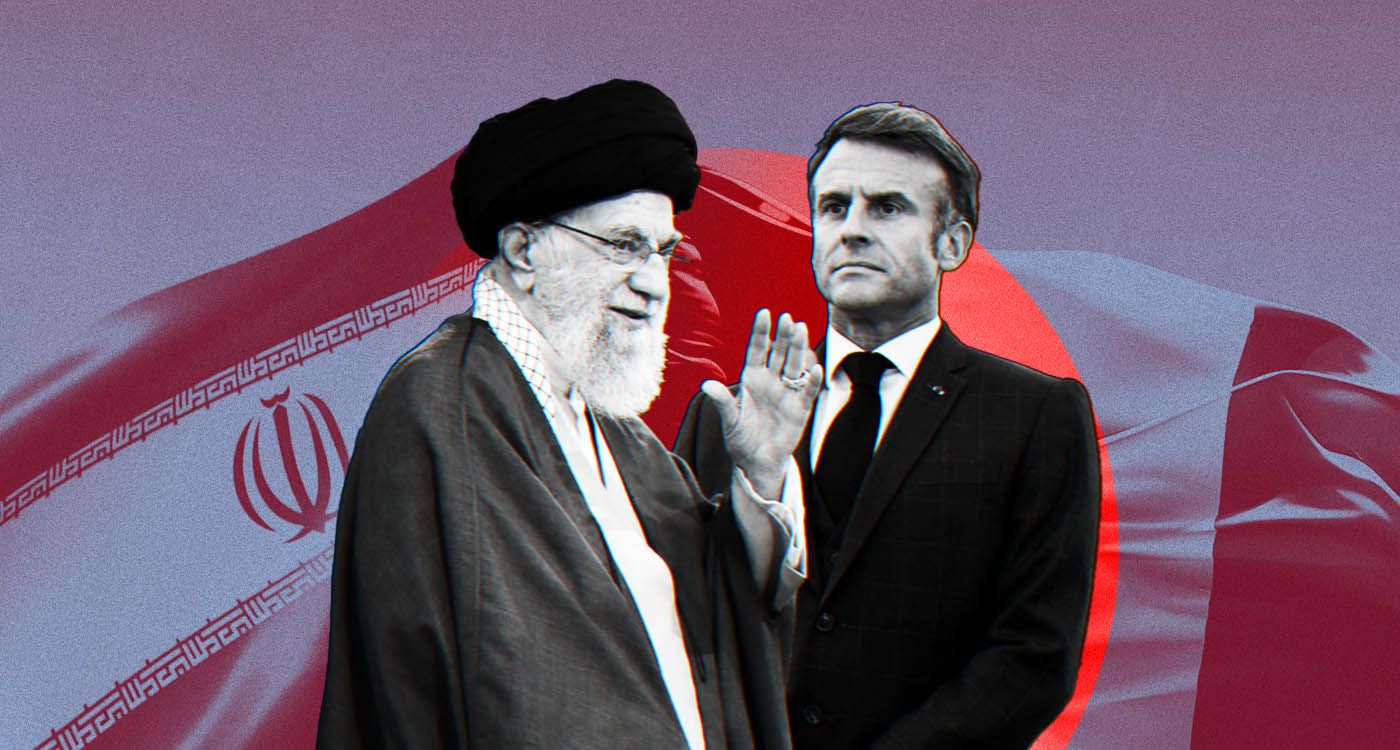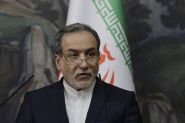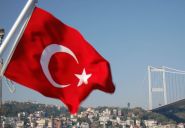- Home
- Middle East
- French-Iranian Relations: Between Rifts and Distrust 1/2

©This is Beirut
Amid escalating tensions between Israel and Iran, France is struggling to assert its position in the Middle East. While it has strongly condemned Iran’s ballistic missile attacks on Israel, France aspires to play a mediating role — a position it has often assumed in the region. Paris played this role during the 2019 nuclear crisis between Washington and Tehran and, more recently, in Lebanon, where the presidency has remained vacant since October 30, 2022. Despite France’s longstanding, albeit at times turbulent, relationship with Iran, this diplomatic endeavor remains fraught with risks. A closer look at French-Iranian relations reveals the complexities of France’s interventionist ambitions on the Middle Eastern stage.
Though geographically distant, France and Iran have shared ties since the Middle Ages. Yet, their relationship has been marked by repeated ruptures, driven by a complex interplay of influence and rivalry in the Middle East and on the international stage. This first section delves into the historical ties between France and Iran, highlighting the pivotal importance of the 1979 Iranian Revolution, which redefined their relations on the world stage.
From the French Revolution onward, numerous contacts were established between the two countries, leading to an increasing influence of French culture in Iran. For instance, many of the physicians at the Persian court (which became Iran in 1935) were French, and Paris provided to many professors and military advisors.
“In the 19th century, many Iranian intellectuals went to study in France and were drawn to the ideas of the French Revolution, modernity, the concept of the nation, democracy, and education. Some of them even participated in the Iranian Constitutional Revolution of 1906," notes Thierry Coville, a researcher at IRIS and Iran specialist, in an interview with This is Beirut. In fact, in the early 20th century, Iran was under foreign domination, with Russia controlling the north and west and Britain the south, while revolutionaries fought for the independence of their country.
At the time, France enjoyed a strong reputation among Iranians, as it had never pursued colonial or imperial ambitions in their country. However, economic and political ties remained limited, with France being only Persia’s fifth-largest trading partner in 1914, according to a 2014 report from the French Senate.
The rise of Mohammed Reza Pahlavi as the new Shah of Iran gave a fresh impetus to French-Iranian relations. "At the beginning of the 20th century, French was the language of choice among Iran’s elite," explains Thierry Coville. "Mohammed Reza Shah often traveled to Europe, and his wife invited many French artists, including Maurice Béjart, to Iran."
The new Shah, who was educated in the French tradition, welcomed several visits from General Charles de Gaulle, who was then leading France. However, on the economic front, relations remained limited, and the French Petroleum Company only secured 6% of the shares following the dismantling of the Anglo-Iranian Oil Company.
In 1975, a nuclear technology agreement was signed between President Pompidou and the Shah of Iran. Iran acquired a stake in Eurodif, a company that would supply it with 10% of its enriched uranium production, while the French company Framatome was tasked with building five nuclear power plants in Iran. In return, Iran provided France with a $1 billion loan.
However, the honeymoon between the two countries was short-lived, with the arrival of a rather unusual Iranian "tourist" in France at the end of 1978: Ayatollah Ruhollah Khomeini. President Giscard d’Estaing allowed him to settle in France, while many French intellectuals, like Michel Foucault and Jean-Paul Sartre, lavished praise on him.
First Rift: From Cultural Influence to the ‘Little Satan’
On February 1, 1979, Ayatollah Khomeini returned to Iran, which was in the midst of a revolution, and the Islamic Republic of Iran was proclaimed. "Initially, France was viewed positively in Iran for having hosted Ayatollah Khomeini; for instance, the street leading to the French Embassy is named Neauphle-le-Château, the town where Khomeini had stayed while in France," explains Thierry Coville. "However, this favorable sentiment quickly turned to hostility with the establishment of the Islamic Republic."
In fact, the emerging Islamic Republic and the French Republic were fundamentally opposed. Built on a religious framework, the new regime faced significant criticism, particularly for its lack of democracy and its violations of women's and minority rights. Amid suspicions of espionage and the Shah of Iran’s presence in the United States, on November 4, 1979, 400 students stormed the US Embassy in Tehran, taking around fifty hostages for 444 days. In response, the United States severed diplomatic relations with Iran and imposed a trade embargo.
The outbreak of the Iran-Iraq War became a turning point in French-Iranian relations. France chose to support Saddam Hussein’s Iraq, leading Iran to label it the "Little Satan," with the title of "Great Satan" reserved for the United States. During this period, Iran demanded from France 10% of the enriched uranium production from Eurodif, as well as the repayment of the loan granted by the Shah. However, Paris rejected both demands.
A series of attacks and kidnappings took place in France and Lebanon, including the bombing of the Drakkar in Beirut on October 23, 1983. France severed diplomatic ties with Iran in 1987 but eventually yielded to Iranian demands. Diplomatic relations were restored, but this period dealt a severe blow to French cultural influence in Iran.
After the Gulf War and with the more moderate presidency of Mohammad Khatami (1997-2005), Paris reestablished significant economic ties with Tehran. Opposing several European countries, France challenged the Amato-Kennedy Act — passed by the US Congress on August 8, 1996 — which imposed sanctions on Iran. As a result, France secured numerous contracts with Iran, becoming its third-largest supplier and seventh-largest customer by 2002. French exports included automobiles, with PSA and Renault establishing production facilities in Iran, as well as pharmaceuticals and oil industry products.
But French-Iranian relations would once again experience a rift over the nuclear issue.
Read more




Comments